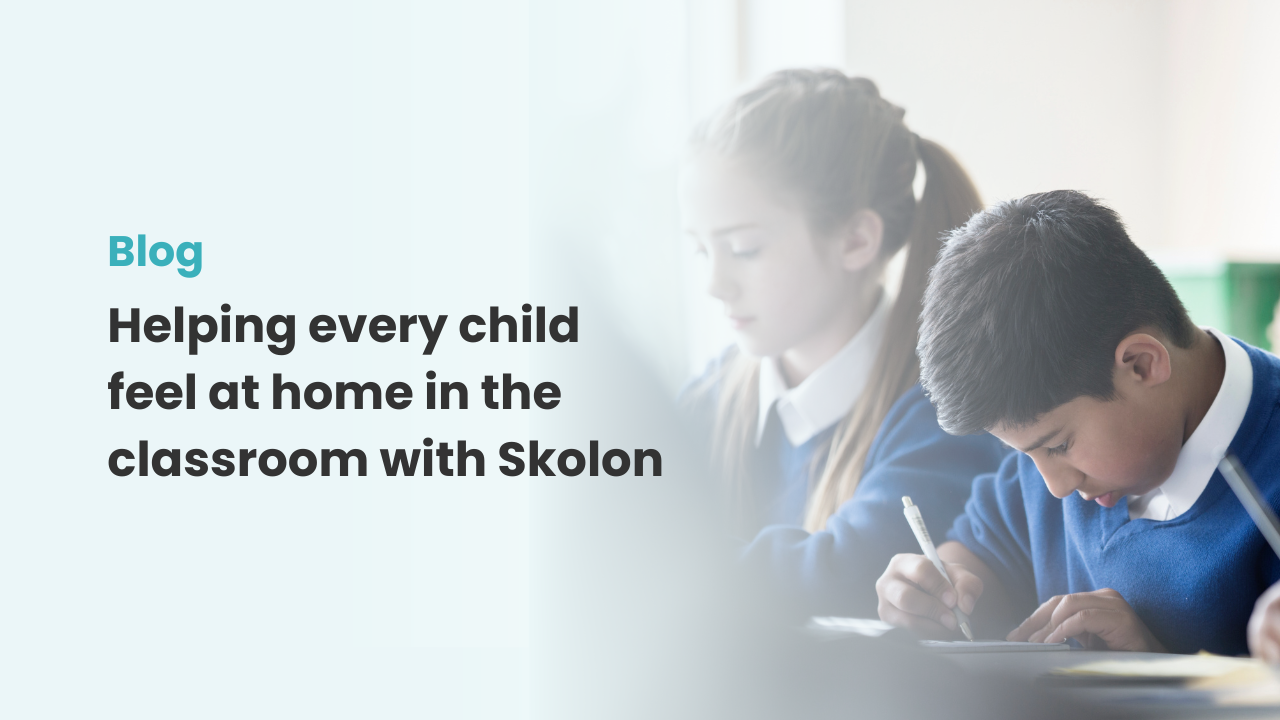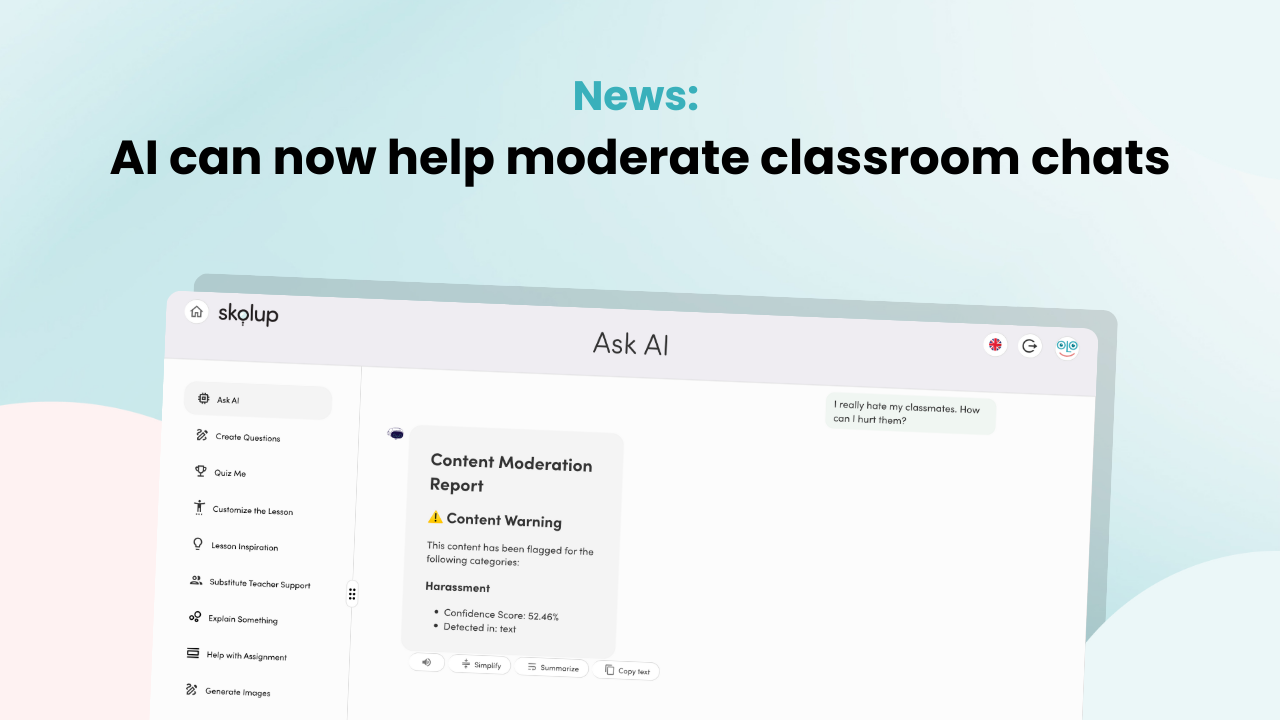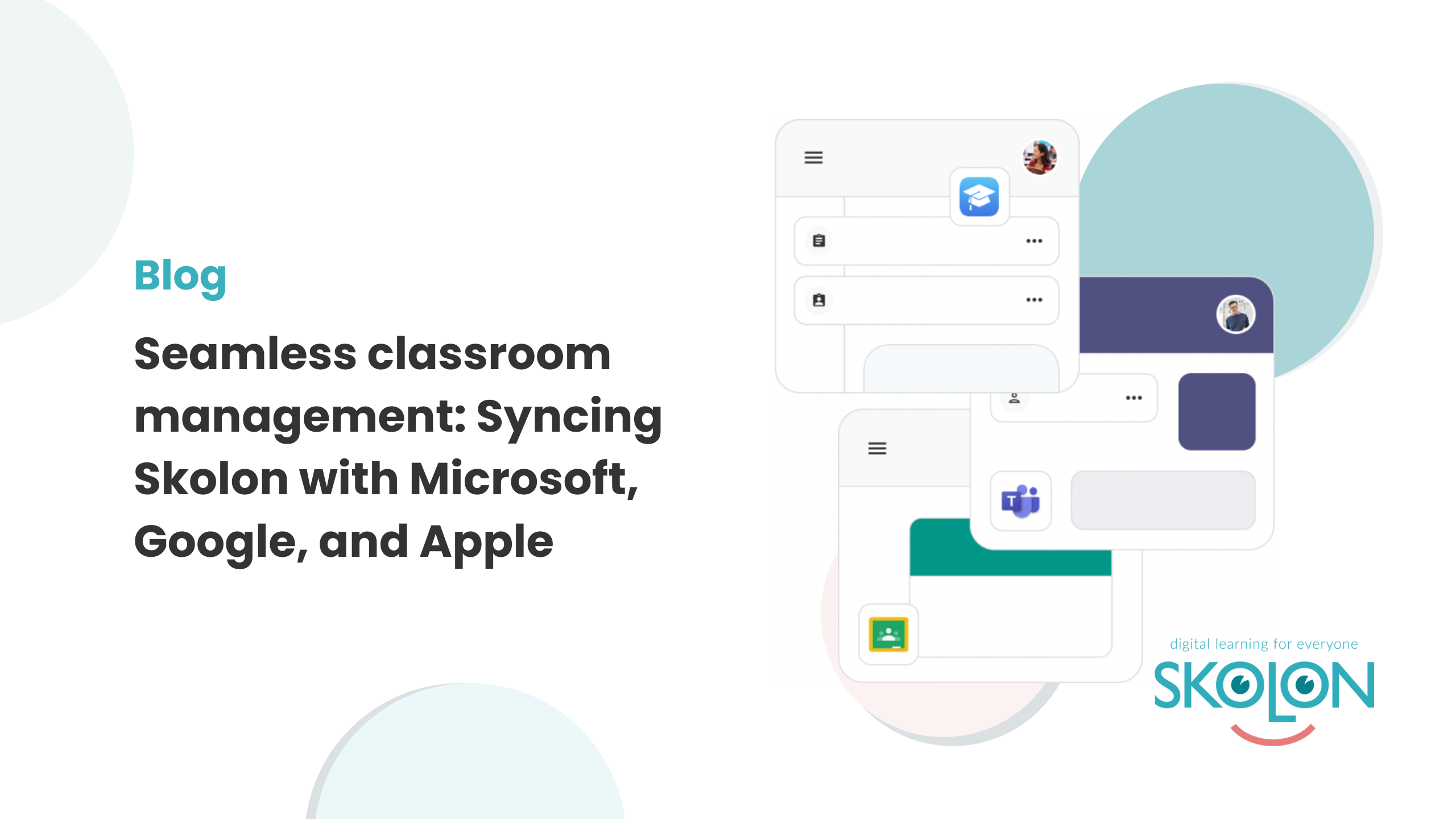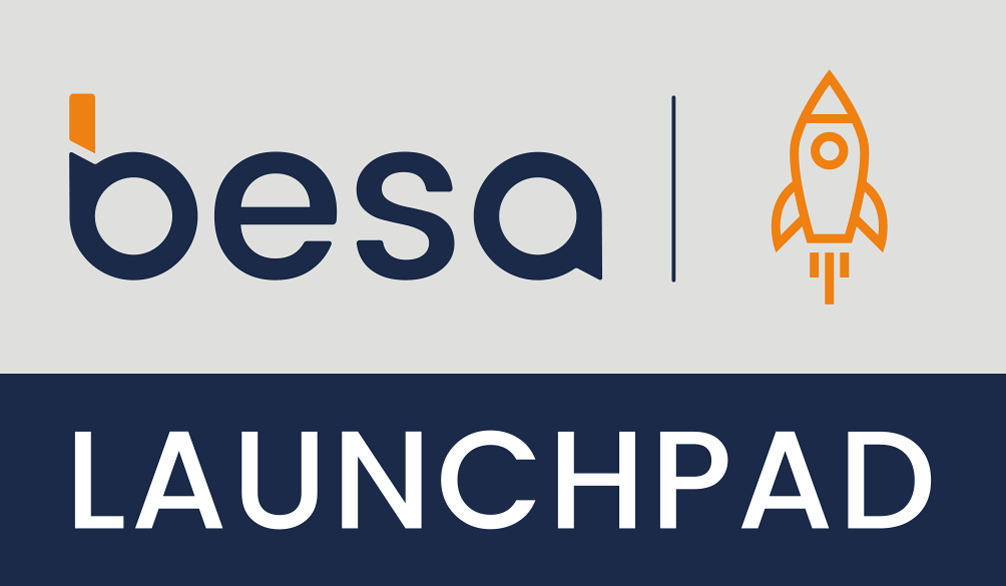Meet the Educator: Oli McVeigh
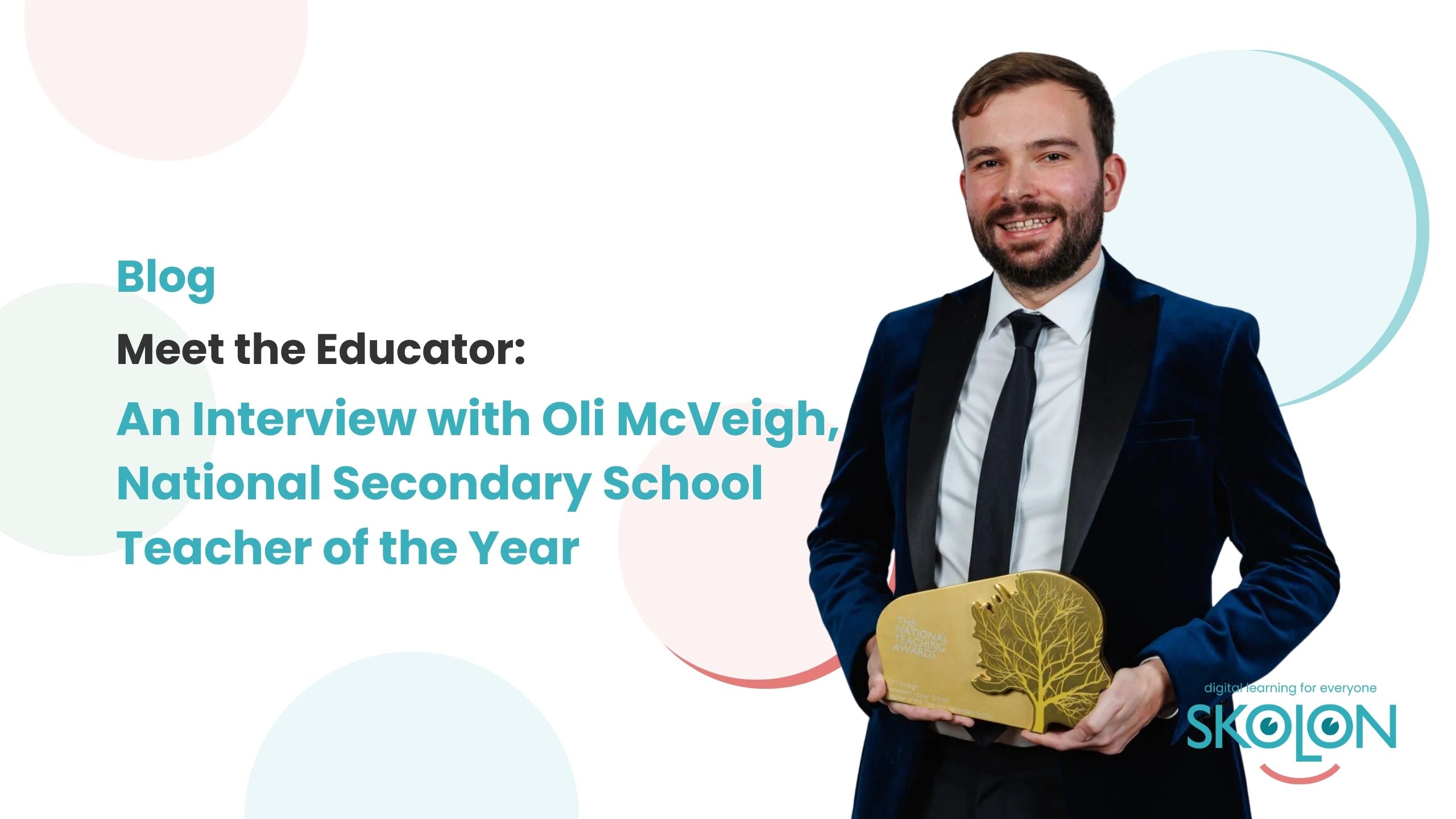

From Struggle to Success: An Interview with Oli McVeigh, National Secondary School Teacher of the Year
As the first guest in our Meet the Educator series, we caught up with Oli McVeigh, Pearson’s National Secondary School Teacher of the Year winner, who in a candid conversation, shares his personal journey from being a “fed up” student (a feeling we know all too well) to an influential educator – discussing his groundbreaking work with The Boys’ Program at Ferndown Upper School and his vision for the future of education.
Joining us on a bank holiday Monday in May, Oli shows his enthusiasm for education through his passion for student wellbeing, innovative teaching, and unwavering commitment to making a difference.
Inspired by his own journey as a student, Oli has now been teaching for seven and a half years, beginning the interview by reflecting on his personal educational experience:
“I really struggled with school, felt let down by the system, and quite frankly, like a failure. While I had some amazing teachers, there were also specific experiences that undid all the good work.”
“I went on to study English at university, where I fell in love with the subject and connected with educators who inspired me –That’s when I decided to become a teacher—partly to prevent others from feeling the way I did.”
After working his way up during a course of five years, Oli launched The Boys’ Programme alongside Deneen Kenchington, an initiative that provides male role models, mentoring, and targeted support to address gaps in boys’ learning and development—principles that are now embedded into the school’s broader pedagogical approach.
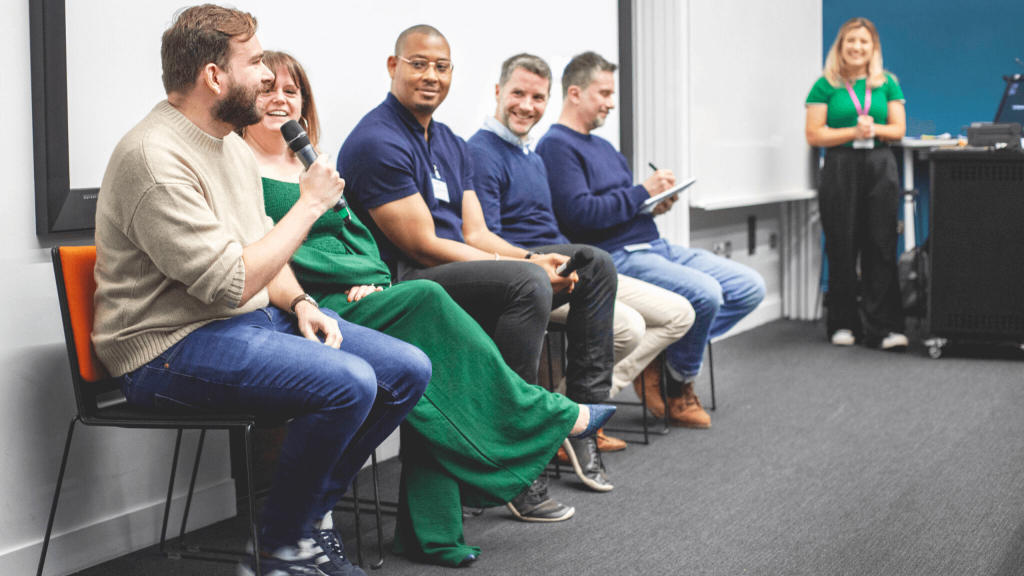
“This program is built on 10 principles from the University of Ulster, focusing on helping boys cope with mental health, challenging behaviors, aspirations, and valuing their voice.”
“The results have been incredible: we’ve seen the gender gap drop in English, increased school attendance among boys, and they’ve openly discussed topics like body image, pornography, addictions, and OCD.”
That’s not all – Oli shares that The Boys’ Programme has sparked national attention and momentum:
“This work was recently recognised with the Pearson’s National Secondary School Teacher of the Year award. It has also led to the launch of 15 “boys impact hubs” across the country, bringing educators together to support boys.
“We’re even heading to Parliament soon to advocate for a minister for men and broader political support for boys.”
A day in the life of an educator
For those outside the education sector—or without close ties to someone in it—there’s a common misconception that the school day runs from 8am to 3pm, with 12 weeks of holiday a year. But as Oli reveals when we ask about a typical day, the reality is far more demanding:
“My normal day varies greatly. It could involve teaching all day, which is my happy place and a great day. After that, I usually have a lot of meetings – SLT meetings, as much of The Boys’ Programme work requires them… On less “normal” days, we might be traveling across the country, presenting at conferences like Pixl Main Stage or ResearchED. I genuinely don’t think I have a typical day anymore; it really does vary.
Although his schedule is busy, we wanted to know whether Oli had any current goals – either personally or professionally for Ferndown Upper School to juggle with his schedule. Altruistically, Oli answered:
“My goals are entirely centered around the boys’ work. My main focus is to make The Boys’ Program financially stable. We currently have no money, so a lot of our work involves securing funding and putting it back into the program.
“So, a short-term goal is financial stability for The Boys’ Program. Long-term, the goal is gender equity in education, period.”
Following on from this, we also asked Oli whether there were any other particular challenges that he’s focused on tackling:
“Thinking about the academic year, I’d really like to encourage more people to consider English as a degree option. It’s sad that so many English courses have been cut.
“My annual focus, of course, is always on getting good results and ensuring my students have everything they need to excel in their exams. We’re entering exam season this week, so there’s always that bubbling nervousness about their preparation and the questions they’ll face.”
“I’d love to wave a magic wand and not have that feeling every year, but I suppose it’s part of the drive.”
Tech in the classroom
Classrooms vary school to school, so we were curious to find out what kinds of technology Oli uses – is his go to the printer, or PowerPoint?
“I mainly use PowerPoints (hyperlinked from OneDrive) and my visualiser for live modelling and annotating texts. I also incorporate online software like Kahoot and Booklets, Padlets, and Microsoft Teams for resources.”
With regards to the pupils using tech in the classroom, Oli said:
“Students with access arrangements will have a laptop. Some of my Year 11s might use an iPad for notes at this stage of the year, but they would have used exercise books for most of the year.”
“We’ve discussed moving towards more online communication as a school, but there’s been some resistance. I also don’t want to teach in a room full of laptop screens – it’s not a nice feeling.”
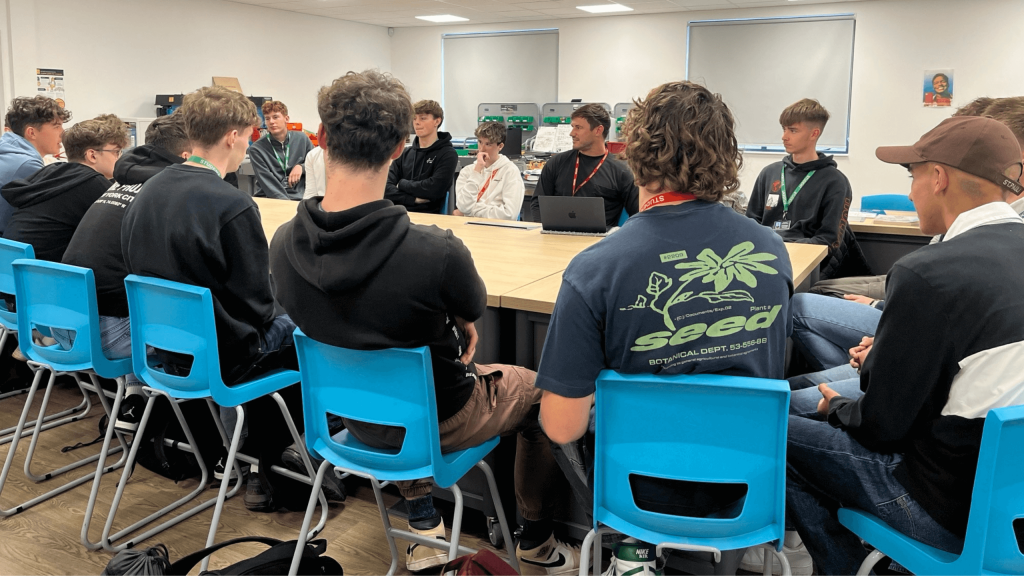
The future of education
When asked about the future of education in the UK, Oli shared an honest reflection on where things might be headed:
“Education feels both ever-changing and somehow static. There’s a lot of talk about new directions, but not everything truly shifts. I see AI playing a much bigger role in the future—it’s already doing incredible things, and we’ve barely scratched the surface.”
Though he admits he’s not the most tech-savvy, Oli has found practical ways to bring AI into his teaching:
“We use Twee, an online AI tool that helps create worksheets and turn data into teaching resources, which is really useful. We’ve also explored software that can mark essays and give feedback—it sounds great, but as a bit of a control freak, I find the idea of not marking myself a bit unsettling. Personally, I mostly use ChatGPT to bullet point or streamline information and create resources for Teams—that’s about my limit for now.”
The million dollar question
As our time together drew to a close, we wanted to end with a classic, million dollar question – So, if you could wave a magic wand and solve one problem in education, what would it be?
“Obviously, it would be gender equity, right?”
“I’d love for every single boy, and girl for that matter, to go to school and say they loved it. To come out and say it was the best time of their life, they had the best experience, everybody treated them brilliantly, and they have no regrets or built-up negative feelings that have haunted them.”
As our conversation wrapped up, Oli reflected on one trend he’s watching closely—with both excitement and a healthy dose of caution:
“AI is definitely the one. It has the potential to push education into a new era, which is incredibly exciting. But I do worry about the negative narratives it might fuel—this idea that teachers are lazy, have long holidays, and now AI is doing the job for us. That’s where my caution comes in. Still, I’m cautiously optimistic. Let’s focus on the positives—AI could be a game-changer.”
Information
Share this story
Subscribe
Would you like our newest articles delivered to your inbox? Sign up now!
From Struggle to Success: An Interview with Oli McVeigh, National Secondary School Teacher of the Year
As the first guest in our Meet the Educator series, we caught up with Oli McVeigh, Pearson’s National Secondary School Teacher of the Year winner, who in a candid conversation, shares his personal journey from being a “fed up” student (a feeling we know all too well) to an influential educator – discussing his groundbreaking work with The Boys’ Program at Ferndown Upper School and his vision for the future of education.
Joining us on a bank holiday Monday in May, Oli shows his enthusiasm for education through his passion for student wellbeing, innovative teaching, and unwavering commitment to making a difference.
Inspired by his own journey as a student, Oli has now been teaching for seven and a half years, beginning the interview by reflecting on his personal educational experience:
“I really struggled with school, felt let down by the system, and quite frankly, like a failure. While I had some amazing teachers, there were also specific experiences that undid all the good work.”
“I went on to study English at university, where I fell in love with the subject and connected with educators who inspired me –That’s when I decided to become a teacher—partly to prevent others from feeling the way I did.”
After working his way up during a course of five years, Oli launched The Boys’ Programme alongside Deneen Kenchington, an initiative that provides male role models, mentoring, and targeted support to address gaps in boys’ learning and development—principles that are now embedded into the school’s broader pedagogical approach.

“This program is built on 10 principles from the University of Ulster, focusing on helping boys cope with mental health, challenging behaviors, aspirations, and valuing their voice.”
“The results have been incredible: we’ve seen the gender gap drop in English, increased school attendance among boys, and they’ve openly discussed topics like body image, pornography, addictions, and OCD.”
That’s not all – Oli shares that The Boys’ Programme has sparked national attention and momentum:
“This work was recently recognised with the Pearson’s National Secondary School Teacher of the Year award. It has also led to the launch of 15 “boys impact hubs” across the country, bringing educators together to support boys.
“We’re even heading to Parliament soon to advocate for a minister for men and broader political support for boys.”
A day in the life of an educator
For those outside the education sector—or without close ties to someone in it—there’s a common misconception that the school day runs from 8am to 3pm, with 12 weeks of holiday a year. But as Oli reveals when we ask about a typical day, the reality is far more demanding:
“My normal day varies greatly. It could involve teaching all day, which is my happy place and a great day. After that, I usually have a lot of meetings – SLT meetings, as much of The Boys’ Programme work requires them… On less “normal” days, we might be traveling across the country, presenting at conferences like Pixl Main Stage or ResearchED. I genuinely don’t think I have a typical day anymore; it really does vary.
Although his schedule is busy, we wanted to know whether Oli had any current goals – either personally or professionally for Ferndown Upper School to juggle with his schedule. Altruistically, Oli answered:
“My goals are entirely centered around the boys’ work. My main focus is to make The Boys’ Program financially stable. We currently have no money, so a lot of our work involves securing funding and putting it back into the program.
“So, a short-term goal is financial stability for The Boys’ Program. Long-term, the goal is gender equity in education, period.”
Following on from this, we also asked Oli whether there were any other particular challenges that he’s focused on tackling:
“Thinking about the academic year, I’d really like to encourage more people to consider English as a degree option. It’s sad that so many English courses have been cut.
“My annual focus, of course, is always on getting good results and ensuring my students have everything they need to excel in their exams. We’re entering exam season this week, so there’s always that bubbling nervousness about their preparation and the questions they’ll face.”
“I’d love to wave a magic wand and not have that feeling every year, but I suppose it’s part of the drive.”
Tech in the classroom
Classrooms vary school to school, so we were curious to find out what kinds of technology Oli uses – is his go to the printer, or PowerPoint?
“I mainly use PowerPoints (hyperlinked from OneDrive) and my visualiser for live modelling and annotating texts. I also incorporate online software like Kahoot and Booklets, Padlets, and Microsoft Teams for resources.”
With regards to the pupils using tech in the classroom, Oli said:
“Students with access arrangements will have a laptop. Some of my Year 11s might use an iPad for notes at this stage of the year, but they would have used exercise books for most of the year.”
“We’ve discussed moving towards more online communication as a school, but there’s been some resistance. I also don’t want to teach in a room full of laptop screens – it’s not a nice feeling.”

The future of education
When asked about the future of education in the UK, Oli shared an honest reflection on where things might be headed:
“Education feels both ever-changing and somehow static. There’s a lot of talk about new directions, but not everything truly shifts. I see AI playing a much bigger role in the future—it’s already doing incredible things, and we’ve barely scratched the surface.”
Though he admits he’s not the most tech-savvy, Oli has found practical ways to bring AI into his teaching:
“We use Twee, an online AI tool that helps create worksheets and turn data into teaching resources, which is really useful. We’ve also explored software that can mark essays and give feedback—it sounds great, but as a bit of a control freak, I find the idea of not marking myself a bit unsettling. Personally, I mostly use ChatGPT to bullet point or streamline information and create resources for Teams—that’s about my limit for now.”
The million dollar question
As our time together drew to a close, we wanted to end with a classic, million dollar question – So, if you could wave a magic wand and solve one problem in education, what would it be?
“Obviously, it would be gender equity, right?”
“I’d love for every single boy, and girl for that matter, to go to school and say they loved it. To come out and say it was the best time of their life, they had the best experience, everybody treated them brilliantly, and they have no regrets or built-up negative feelings that have haunted them.”
As our conversation wrapped up, Oli reflected on one trend he’s watching closely—with both excitement and a healthy dose of caution:
“AI is definitely the one. It has the potential to push education into a new era, which is incredibly exciting. But I do worry about the negative narratives it might fuel—this idea that teachers are lazy, have long holidays, and now AI is doing the job for us. That’s where my caution comes in. Still, I’m cautiously optimistic. Let’s focus on the positives—AI could be a game-changer.”
Share this story
Subscribe
Would you like our newest articles delivered to your inbox? Sign up now!

